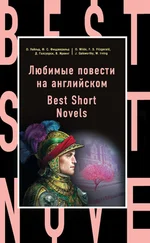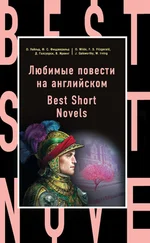On the night of which I speak we had a splendid new specimen – a man at once physically powerful and of such high mentality that a sensitive nervous system was assured. It was rather ironic, for he was the officer who had helped West to his commission, and who was now to have been our associate. Moreover, he had in the past secretly studied the theory of reanimation to some extent under West. Major Sir Eric Moreland Clapham-Lee, D.S.O. [519], was the greatest surgeon in our division, and had been hastily assigned to the St. Eloi sector when news of the heavy fighting reached headquarters. He had come in an aeroplane piloted by the intrepid Lieut. Ronald Hill, only to be shot down when directly over his destination. The fall had been spectacular and awful; Hill was unrecognisable afterward, but the wreck yielded up the great surgeon in a nearly decapitated but otherwise intact condition. West had greedily seized the lifeless thing which had once been his friend and fellow-scholar; and I shuddered when he finished severing the head, placed it in his hellish vat of pulpy reptile-tissue to preserve it for future experiments, and proceeded to treat the decapitated body on the operating table. He injected new blood, joined certain veins, arteries, and nerves at the headless neck, and closed the ghastly aperture with engrafted skin from an unidentified specimen which had borne an officer’s uniform. I knew what he wanted – to see if this highly organised body could exhibit, without its head, any of the signs of mental life which had distinguished Sir Eric Moreland Clapham-Lee. Once a student of reanimation, this silent trunk was now gruesomely called upon to exemplify it.
I can still see Herbert West under the sinister electric light as he injected his reanimating solution into the arm of the headless body. The scene I cannot describe – I should faint if I tried it, for there is madness in a room full of classified charnel things, with blood and lesser human debris almost ankle-deep on the slimy floor, and with hideous reptilian abnormalities sprouting, bubbling, and baking over a winking bluish-green spectre of dim flame in a far corner of black shadows.
The specimen, as West repeatedly observed, had a splendid nervous system. Much was expected of it; and as a few twitching motions began to appear, I could see the feverish interest on West’s face. He was ready, I think, to see proof of his increasingly strong opinion that consciousness, reason, and personality can exist independently of the brain – that man has no central connective spirit, but is merely a machine of nervous matter, each section more or less complete in itself. In one triumphant demonstration West was about to relegate the mystery of life to the category of myth. The body now twitched more vigorously, and beneath our avid eyes commenced to heave in a frightful way. The arms stirred disquietingly, the legs drew up, and various muscles contracted in a repulsive kind of writhing. Then the headless thing threw out its arms in a gesture which was unmistakably one of desperation – an intelligent desperation apparently sufficient to prove every theory of Herbert West. Certainly, the nerves were recalling the man’s last act in life; the struggle to get free of the falling aeroplane.
What followed, I shall never positively know. It may have been wholly an hallucination from the shock caused at that instant by the sudden and complete destruction of the building in a cataclysm of German shell-fire – who can gainsay it, since West and I were the only proved survivors? West liked to think that before his recent disappearance, but there were times when he could not; for it was queer that we both had the same hallucination. The hideous occurrence itself was very simple, notable only for what it implied.
The body on the table had risen with a blind and terrible groping, and we had heard a sound. I should not call that sound a voice, for it was too awful. And yet its timbre was not the most awful thing about it. Neither was its message – it had merely screamed, ‘Jump, Ronald, for God’s sake, jump!’ The awful thing was its source.
For it had come from the large covered vat in that ghoulish corner of crawling black shadows.
When Dr. Herbert West disappeared a year ago, the Boston police questioned me closely. They suspected that I was holding something back, and perhaps suspected graver things; but I could not tell them the truth because they would not have believed it. They knew, indeed, that West had been connected with activities beyond the credence of ordinary men; for his hideous experiments in the reanimation of dead bodies had long been too extensive to admit of perfect secrecy; but the final soul-shattering catastrophe held elements of daemoniac phantasy which make even me doubt the reality of what I saw.
I was West’s closest friend and only confidential assistant. We had met years before, in medical school, and from the first I had shared his terrible researches. He had slowly tried to perfect a solution which, injected into the veins of the newly deceased, would restore life; a labour demanding an abundance of fresh corpses and therefore involving the most unnatural actions. Still more shocking were the products of some of the experiments – grisly masses of flesh that had been dead, but that West waked to a blind, brainless, nauseous animation. These were the usual results, for in order to reawaken the mind it was necessary to have specimens so absolutely fresh that no decay could possibly affect the delicate brain-cells.
This need for very fresh corpses had been West’s moral undoing. They were hard to get, and one awful day he had secured his specimen while it was still alive and vigorous. A struggle, a needle, and a powerful alkaloid had transformed it to a very fresh corpse, and the experiment had succeeded for a brief and memorable moment; but West had emerged with a soul calloused and seared, and a hardened eye which sometimes glanced with a kind of hideous and calculating appraisal at men of especially sensitive brain and especially vigorous physique. Toward the last I became acutely afraid of West, for he began to look at me that way. People did not seem to notice his glances, but they noticed my fear; and after his disappearance used that as a basis for some absurd suspicions.
West, in reality, was more afraid than I; for his abominable pursuits entailed a life of furtiveness and dread of every shadow. Partly it was the police he feared; but sometimes his nervousness was deeper and more nebulous, touching on certain indescribable things into which he had injected a morbid life, and from which he had not seen that life depart. He usually finished his experiments with a revolver, but a few times he had not been quick enough. There was that first specimen on whose rifled grave marks of clawing were later seen. There was also that Arkham professor’s body which had done cannibal [520]things before it had been captured and thrust unidentified into a madhouse cell at Sefton, where it beat the walls for sixteen years. Most of the other possibly surviving results were things less easy to speak of – for in later years West’s scientific zeal had degenerated to an unhealthy and fantastic mania, and he had spent his chief skill in vitalising not entire human bodies but isolated parts of bodies, or parts joined to organic matter other than human. It had become fiendishly disgusting by the time he disappeared; many of the experiments could not even be hinted at in print. The Great War, through which both of us served as surgeons, had intensified this side of West.
In saying that West’s fear of his specimens was nebulous, I have in mind particularly its complex nature. Part of it came merely from knowing of the existence of such nameless monsters, while another part arose from apprehension of the bodily harm they might under certain circumstances do him. Their disappearance added horror to the situation – of them all, West knew the whereabouts of only one, the pitiful asylum thing. Then there was a more subtle fear – a very fantastic sensation resulting from a curious experiment in the Canadian army in 1915. West, in the midst of a severe battle, had reanimated Major Sir Eric Moreland Clapham-Lee, D.S.O., a fellow-physician who knew about his experiments and could have duplicated them. The head had been removed, so that the possibilities of quasi-intelligent life in the trunk might be investigated. Just as the building was wiped out by a German shell, there had been a success. The trunk had moved intelligently; and, unbelievable to relate, we were both sickeningly sure that articulate sounds had come from the detached head as it lay in a shadowy corner of the laboratory. The shell had been merciful, in a way – but West could never feel as certain as he wished, that we two were the only survivors. He used to make shuddering conjectures about the possible actions of a headless physician with the power of reanimating the dead.
Читать дальше
Конец ознакомительного отрывка
Купить книгу












